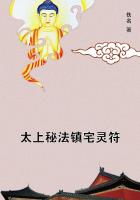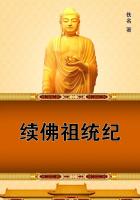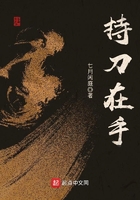Those who, straight from the contested field, wandered sobbing through the rooms of the ladies' house, saw what it were well could the outraged earth have straightway hidden. The inner apartment was ankle-deep in blood. The plaster was scored with sword-cuts; not high up as where men have fought, but low down, and about the corners, as if a creature had crouched to avoid the blow. Strips of dresses, vainly tied around the handles of the doors, signified the contrivance to which feminine despair had resorted as a means of keeping out the murderers. Broken combs were there, and the frills of children's trousers, and torn cuffs and pinafores, and little round hats, and one or two shoes with burst latchets, and one or two daguerreotype cases with cracked glasses. An officer picked up a few curls, preserved in a bit of cardboard, and marked 'Ned's hair, with love'; but around were strewn locks, some near a yard in length, dissevered, not as a keepsake, by quite other scissors."The battle of Waterloo was fought on the 18th of June, 1815. I do not state this fact as a reminder to the reader, but as news to him. For a forgotten fact is news when it comes again. Writers of books have the fashion of whizzing by vast and renowned historical events with the remark, "The details of this tremendous episode are too familiar to the reader to need repeating here." They know that that is not true. It is a low kind of flattery. They know that the reader has forgotten every detail of it, and that nothing of the tremendous event is left in his mind but a vague and formless luminous smudge. Aside from the desire to flatter the reader, they have another reason for ****** the remark-two reasons, indeed. They do not remember the details themselves, and do not want the trouble of hunting them up and copying them out; also, they are afraid that if they search them out and print them they will be scoffed at by the book-reviewers for retelling those worn old things which are familiar to everybody. They should not mind the reviewer's jeer; he doesn't remember any of the worn old things until the book which he is reviewing has retold them to him.
I have made the quoted remark myself, at one time and another, but I was not doing it to flatter the reader; I was merely doing it to save work.
If I had known the details without brushing up, I would have put them in;but I didn't, and I did not want the labor of posting myself; so I said, "The details of this tremendous episode are too familiar to the reader to need repeating here." I do not like that kind of a lie; still, it does save work.
I am not trying to get out of repeating the details of the Siege of Lucknow in fear of the reviewer; I am not leaving them out in fear that they would not interest the reader; I am leaving them out partly to save work; mainly for lack of room. It is a pity, too; for there is not a dull place anywhere in the great story.
Ten days before the outbreak (May 10th) of the Mutiny, all was serene at Lucknow, the huge capital of Oudh, the kingdom which had recently been seized by the India Company. There was a great garrison, composed of about 7,000 native troops and between 700 and 800 whites. These white soldiers and their families were probably the only people of their race there; at their elbow was that swarming population of warlike natives, a race of born soldiers, brave, daring, and fond of fighting. On high ground just outside the city stood the palace of that great personage, the Resident, the representative of British power and authority. It stood in the midst of spacious grounds, with its due complement of outbuildings, and the grounds were enclosed by a wall--a wall not for defense, but for privacy. The mutinous spirit was in the air, but the whites were not afraid, and did not feel much troubled.
Then came the outbreak at Meerut, then the capture of Delhi by the mutineers; in June came the three-weeks leaguer of Sir Hugh Wheeler in his open lot at Cawnpore--40 miles distant from Lucknow--then the treacherous massacre of that gallant little garrison; and now the great revolt was in full flower, and the comfortable condition of things at Lucknow was instantly changed.
There was an outbreak there, and Sir Henry Lawrence marched out of the Residency on the 30th of June to put it down, but was defeated with heavy loss, and had difficulty in getting back again. That night the memorable siege of the Residency--called the siege of Lucknow--began. Sir Henry was killed three days later, and Brigadier Inglis succeeded him in command.
Outside of the Residency fence was an immense host of hostile and confident native besiegers; inside it were 480 loyal native soldiers, 730white ones, and 500 women and children.
In those days the English garrisons always managed to hamper themselves sufficiently with women and children.
The natives established themselves in houses close at hand and began to rain bullets and cannon-balls into the Residency; and this they kept up, night and day, during four months and a half, the little garrison industriously replying all the time. The women and children soon became so used to the roar of the guns that it ceased to disturb their sleep.
The children imitated siege and defense in their play. The women--with any pretext, or with none--would sally out into the storm-swept grounds.
The defense was kept up week after week, with stubborn fortitude, in the midst of death, which came in many forms--by bullet, small-pox, cholera, and by various diseases induced by unpalatable and insufficient food, by the long hours of wearying and exhausting overwork in the daily and nightly battle in the oppressive Indian heat, and by the broken rest caused by the intolerable pest of mosquitoes, flies, mice, rats, and fleas.















